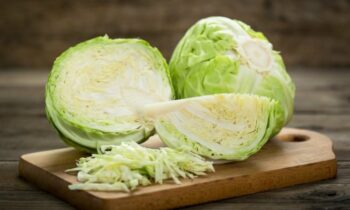That flavorful penne all’arrabiata may have benefits that go more remote than putting a grin all over, as per another study.
For a long time, chili has been hailed for its helpful properties, and now analysts have discovered that eating bean stew peppers routinely can cut the danger of death from coronary illness and stroke.
Done in Italy, where stew is a typical fixing, the examination looked at the danger of death among 23,000 individuals, some of whom ate bean stew and some of whom didn’t.
Members’ health status and dietary patterns were observed more than eight years, and specialists found that the danger of biting the dust from a cardiovascular failure was 40% lower among those eating stew peppers at any rate four times each week.
Demise from stroke was more than divided, as indicated by results distributed Monday in the Journal of the American College of Cardiology.
“An interesting fact is that protection from mortality risk was independent of the type of diet people followed,” said study lead creator Marialaura Bonaccio, a disease transmission specialist at the Mediterranean Neurological Institute (Neuromed).
“In other words, someone can follow the healthy Mediterranean diet, someone else can eat less healthily, but for all of them chili pepper has a protective effect,” she said.
The exploration utilizes information from the Moli-Sani study, which has around 25,000 members in the Molise area of southern Italy.
Licia Iacoviello, executive of the branch of the study of disease transmission and counteractive action at Neuromed and a teacher at the University of Insubria in Varese, clarified that the helpful properties of stew had been gone down through Italian food culture.
“And now, as already observed in China and in the United States, we know that the various plants of the capsicum species, although consumed in different ways throughout the world, can exert a protective action towards our health,” said Iacoviello.
The group presently plans to research the biochemical systems that make chili useful for our wellbeing.
Outer specialists applauded the investigation while calling attention to certain restrictions.
Duane Mellor, an enlisted dietitian and senior showing individual at Aston Medical School in the UK, said the paper is “interesting” yet “does not show a causal link” between bean stew utilization and medical advantages.
Mellor said the constructive outcome of bean stew utilization saw in the investigation could be ascribed to how the peppers are utilized in a general eating regimen.
“It is plausible people who use chillies, as the data suggests also used more herbs and spices, and as such likely to be eating more fresh foods including vegetables,” he said.
“So, although chillies can be a tasty addition to our recipes and meals, any direct effect is likely to be small and it is more likely that it makes eating other healthy foods more pleasurable.”
Ian Johnson, a sustenance scientist at Quadram Institute Bioscience in Norwich, England, commended the “high-quality observational study” for its “robust methods.”
Be that as it may, he likewise brought up that no component for the defensive impact was distinguished, nor did researchers find that eating more bean stew gave extra medical advantages.
“This type of relationship suggests that chillies may be just a marker for some other dietary or lifestyle factor that hasn’t been accounted for but, to be fair, this kind of uncertainty is usually present in epidemiological studies, and the authors do acknowledge this,” said Johnson.



